Detailed introduction of Vorarlberg University of Applied Sciences:
Introduction
Vorarlberg University of Applied Sciences is a well-known public university of applied sciences in Austria. It is committed to providing students with high-quality applied science education, focusing on the combination of practice and theory, and cultivating students' professional skills and innovation capabilities in multiple fields to meet the actual needs of society and enterprises.
Overview
Number of students: The school has a total of 1,999 students.
Course settings: It offers undergraduate and master's degree programs in multiple fields including engineering, computer science, business, nursing, social work, etc., such as bachelor's programs in computer engineering, electrical engineering, international business, mechanical engineering, multimedia, nursing, social work, etc., and master's programs in accounting, business administration, computer science, energy engineering, finance, etc.
History and establishment time
The school was established in 1992 and is one of the younger higher education institutions in Austria.
School strength
Faculty: It has a high-quality faculty team. The teachers not only have a deep academic background, but also have rich practical experience and industry connections. They can provide students with professional teaching guidance, help students apply theoretical knowledge to practical projects, and guide students to understand the latest developments and development trends in the industry, laying a solid foundation for students' career development.
Scientific research results: As one of Austria's research-intensive universities of applied sciences, it has achieved fruitful scientific research results, published 714 scientific papers, and cited 10,029 times. Its research fields cover engineering, physics, computer science, chemistry, quantum and particle physics, materials science, liberal arts and social sciences. The school's scientific research projects work closely with enterprises in the region and scientific research partners at home and abroad to ensure that the research results have practical application value and can be transformed into teaching content in a timely manner, so that the knowledge learned by students is closely integrated with market demand.
International exchanges and cooperation: Actively carry out international exchanges and cooperation, and provide students with abundant international exchange opportunities, such as student exchange programs. Through cooperation with foreign universities and institutions, the school has broadened students' international vision, enhanced their cross-cultural communication skills and global competitiveness, and also enhanced the school's international reputation and influence.
Institutional Nature
Public non-profit university.
Educational Philosophy
Focus on practical teaching, emphasize the close integration of theoretical knowledge with practical application, cultivate students' ability to solve practical problems and innovative spirit, enable students to quickly adapt to the workplace environment and succeed in their respective professional fields. At the same time, it attaches importance to interdisciplinary education, encourages students to conduct cross-disciplinary learning and research between different disciplines, and cultivates students' comprehensive literacy and interdisciplinary thinking ability to better cope with complex and changing social and industry needs.
Key laboratories and disciplines
Key disciplines: Engineering, computer science, physics, chemistry, business and management are the key development disciplines of the school. In the field of engineering, optical engineering, nanotechnology, electrical engineering and other professional directions have strong teaching and research strength; artificial intelligence, machine learning, telecommunications and other directions in the field of computer science have also achieved remarkable results; quantum and particle physics, materials science and other research in physics are also relatively prominent.
Key laboratories: Although no specific key laboratories are explicitly mentioned, the school's close cooperation with regional enterprises and scientific research partners provides a platform for practice and research for students and teachers, which can be regarded as an important support for their scientific research activities and promotes the transformation and application of scientific research results.
Departments
The school has the following departments:
Department of Business Administration: including accounting, business administration, human resources, industrial management, international business, leadership, management, marketing and other professional directions.
Department of Design: covering design communication research, design, graphic design, media research, visual arts and other majors.
Department of Engineering and Technology: with majors such as computer engineering, electronic engineering, electronics and automation, mechanical engineering, robotics and other majors.
Department of Social Work and Health: including majors such as social work and health care.
Rankings
In the 2024 global ranking, the university is ranked 4596th; 1183rd in Europe; and 33rd in Austria. In the field of engineering, the university is ranked 21st in Austria and 4230th in the world; in the field of physics, it is ranked 21st in Austria and 4291st in the world; in the field of computer science, it is ranked 24th in Austria and 4363rd in the world; in the field of chemistry, it is ranked 21st in Austria and 4666th in the world.
Costs
Local citizens and EU residents enjoy free education.
Tuition fees for other international students start at $1,000 per year, and tuition fees for undergraduate and master's degree programs are approximately 360 euros per semester, and 730 euros per semester for doctoral programs.
Campus
Location and surroundings: The campus is located in Dornbirn, Vorarlberg, Austria, at Hochschulstrasse 1, 6850 Dornbirn is located in the suburbs, with convenient transportation and close to nature. Students can quickly reach the city center and enjoy various outdoor leisure activities, which helps to form a close-knit student community.
Campus facilities: The school has a library with a rich collection of textbooks and academic works, as well as classic literature, modern literature and other books, providing students with good learning and research resources. In addition, the campus is also equipped with complete teaching facilities and laboratories to meet the practical teaching needs of students from different majors.
-

Graz University of Technology
-

University of Linz
-
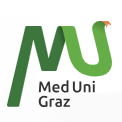
Medical University of Graz
-

University of Leoben
-
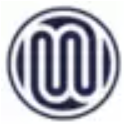
Medical University of Vienna
-
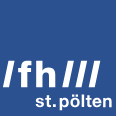
St. Pölten University of Applied Sciences
-
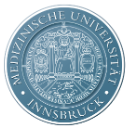
Innsbruck Medical University
-
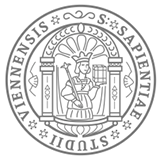
University of Vienna
-
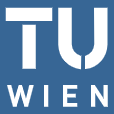
Vienna University of Technology
-

University of Natural Resources and Applied Life Sciences, Vienna
-

Mesoamerican University
-

Istmo University
-

Mariano Galvez University of Guatemala
-

Regional University of Guatemala
-

Galileo University
-

Francisco Marroquín University
-

Rafael Landívar University
-

University of the Valley of Guatemala
-

University of San Carlos of Guatemala
-

Technological Institute of Tlaxcala Plateau
-

Golfo University
-

Technological University of South Sonora
-

Technological University of Huejotzingo
-

Tizimín Institute of Technology
-

Chilpancingo Institute of Technology

